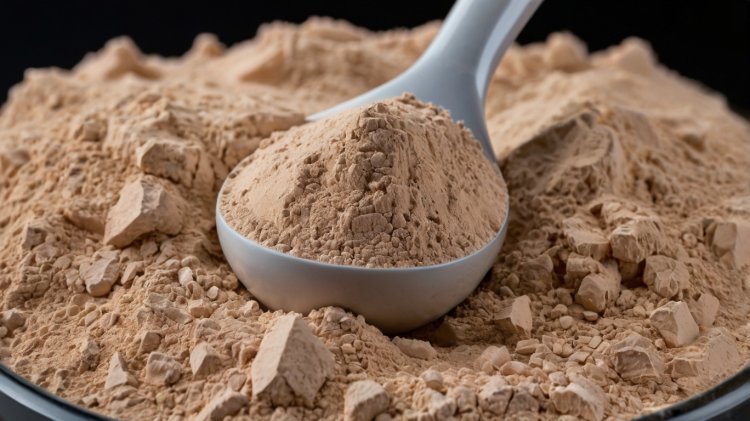10 Evidence-Based Advantages of Protein for Wellness, Muscle Development, and Cognitive Health
Discover the top 10 science-backed benefits of whey protein, including muscle growth, weight loss, and improved heart health. Learn how to use whey protein effectively for optimal results.

The Ultimate Guide to Whey Protein: 10 Science-Backed Benefits and How to Use It
Introduction
Whey protein is one of the most researched dietary supplements globally, celebrated for its high nutritional value and numerous health benefits. Derived from milk during cheese production, whey protein is a complete, easily digestible protein packed with essential amino acids. It’s a favorite among athletes, fitness enthusiasts, and health-conscious individuals.
In this comprehensive guide, we’ll explore the top 10 science-backed benefits of whey protein, its types, how to use it, and tips to maximize its effectiveness.
What is Whey Protein?
Whey protein is the liquid by-product of cheese production. It contains all nine essential amino acids and is quickly absorbed by the body, making it an excellent source of high-quality protein.
Types of Whey Protein:
- Whey Protein Concentrate (WPC): Contains a small amount of fat and carbohydrates.
- Whey Protein Isolate (WPI): Purified to remove fat and lactose, offering a higher protein content.
- Whey Protein Hydrolysate (WPH): Pre-digested for faster absorption and often used in medical protein supplements.
Top 10 Health Benefits of Whey Protein
1. High-Quality Protein Source
Whey protein is a complete protein, rich in essential amino acids, including leucine, which plays a vital role in muscle growth. It’s highly digestible and quickly absorbed, making it one of the best dietary protein sources.
2. Promotes Muscle Growth
Whey protein stimulates muscle protein synthesis, aiding in muscle growth and maintenance. Its high leucine content makes it especially effective for strength training and preventing age-related muscle loss.
3. Helps Regulate Blood Pressure
Whey protein contains bioactive peptides called lactokinins, which act as ACE inhibitors, helping reduce high blood pressure. Studies have shown its potential to lower blood pressure in individuals with hypertension.
4. Supports Blood Sugar Control
Whey protein improves insulin sensitivity and moderates blood sugar levels, especially when consumed with high-carb meals. This makes it a useful supplement for managing type 2 diabetes.
5. Reduces Inflammation
Chronic inflammation can lead to several health issues. Whey protein has been shown to significantly reduce C-reactive protein (CRP), a key marker of inflammation, when consumed in high doses.
6. May Benefit Inflammatory Bowel Disease (IBD)
Research suggests that whey protein may help reduce inflammation in the gut lining, providing relief for conditions like Crohn’s disease and ulcerative colitis.
7. Enhances Antioxidant Defense
Whey protein boosts the body’s production of glutathione, a powerful antioxidant, protecting against oxidative stress and reducing the risk of chronic diseases.
8. Improves Heart Health
High doses of whey protein have shown potential in lowering LDL (bad) cholesterol and triglycerides, promoting overall heart health.
9. Aids in Weight Loss
Whey protein increases feelings of fullness, reduces appetite, and helps maintain muscle mass during weight loss. Its thermogenic effect boosts metabolism, helping you burn more calories.
10. Helps Maintain Bone and Muscle Health as You Age
Whey protein reduces age-related muscle loss and supports bone health, making it an essential supplement for older adults.
How to Use Whey Protein
Recommended Dosage:
- General Use: 25–50 grams per day (1–2 scoops).
- For Muscle Growth: Take 20–30 grams post-workout.
- For Weight Loss: Use as a meal replacement or snack.
How to Incorporate:
- Add to smoothies or shakes.
- Mix with water, milk, or yogurt.
- Blend into oatmeal, pancakes, or baked goods.
Side Effects and Precautions
Whey protein is generally safe for most people. However, excessive intake may cause:
- Bloating
- Nausea
- Stomach cramps
If you’re lactose intolerant, opt for whey protein isolate or hydrolysate. Consult your doctor if you have pre-existing kidney or liver conditions.
Conclusion
Whey protein is more than just a fitness supplement. Its impressive benefits range from muscle growth and weight loss to improved heart health and antioxidant support. Whether you’re an athlete or someone looking to boost overall health, whey protein is a valuable addition to your diet.











